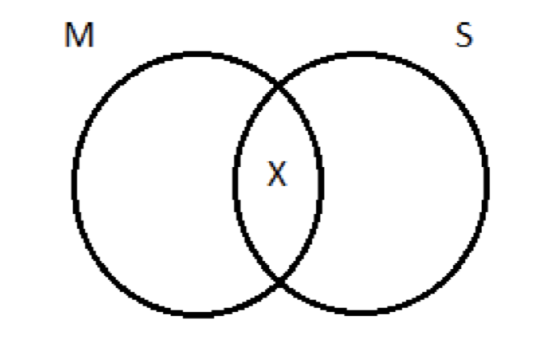A categorical syllogism is a form of deductive reasoning that facilitates conclusions based on two interrelated premises. This reasoning helps us understand how certain things are related and helps us make informed decisions.
Basics of Categorical Syllogism
A categorical syllogism consists of three parts: the major premise, the minor premise, and the conclusion.
The major premise is a general statement describing a broad idea encompassing the minor premise.
The minor premise is a specific statement that provides more information about the major premise.
Using the two premises, a conclusion can be drawn.
Benefits of Understanding Categorical Syllogism
Categorical syllogism is a powerful tool for decision-making and problem-solving. By understanding how different things are related to each other, it becomes easier to make informed decisions. Additionally, using deductive reasoning can reduce the potential for errors in decision-making.
Examples of Categorical Syllogism
Let us consider some examples to understand categorical syllogism better.
Example 1
Major Premise: All mammals are warm-blooded animals.
Minor Premise: All tigers are mammals.
Conclusion: Therefore, all tigers are warm-blooded animals.
In this example, the major premise establishes that all mammals are warm-blooded animals. The minor premise adds that all tigers are mammals. From these two premises, we can logically conclude that all tigers are warm-blooded animals.
Example 2
Major Premise: All professional athletes train regularly.
Minor Premise: Michael Jordan was a professional athlete.
Conclusion: Therefore, Michael Jordan trained regularly.
In this scenario, the major premise states that all professional athletes train regularly, while the minor premise identifies Michael Jordan as a professional athlete. From these two statements, we can logically conclude that Michael Jordan trained regularly because he falls under the category of “all professional athletes” who do so according to the major premise.
Example 3
Major Premise: All planets revolve around the sun.
Minor Premise: Earth is a planet.
Conclusion: Therefore, Earth revolves around the sun.
Categorical syllogism can be used in astronomy to draw logical conclusions based on related premises and understand how different celestial bodies move in our solar system. In this example, the major premise establishes that all planets revolve around the sun. The minor premise adds that Earth is a planet. From these two premises, we can logically conclude that Earth revolves around the sun.
Example 4
Major Premise: All dogs bark.
Minor Premise: Fido is a dog.
Conclusion: Therefore, Fido barks.
In this example, the major premise states that all dogs bark. The minor premise adds that Fido is a dog. From these two premises, we can logically conclude that Fido barks. Categorical syllogism can be applied in animal behavior studies to draw logical conclusions based on related premises and understand how different animals behave in certain situations.
Example 5
Major Premise: All birds lay eggs.
Minor Premise: Penguins are birds.
Conclusion: Therefore, penguins lay eggs.
In this example, the major premise states that all birds lay eggs. The minor premise adds that penguins are birds. From these two premises, we can logically conclude that penguins lay eggs.
Example 6
Major Premise: All vegetables are healthy.
Minor Premise: Spinach is a vegetable.
Conclusion: Therefore, spinach is healthy.
Categorical syllogism can also be used in nutrition to draw logical conclusions based on related premises and make informed decisions about what to eat for a healthy diet. In this example, the major premise establishes that all vegetables are healthy. The minor premise adds that spinach is a vegetable. From these two premises, we can logically conclude that spinach is healthy.
Example 7
Major Premise: All politicians make promises they cannot keep.
Minor Premise: Some business people are politicians.
Conclusion: Therefore, some businesspeople make promises they cannot keep.
In this example, the major premise states that all politicians make promises they cannot keep. The minor premise adds that some businesspeople are politicians. From these two premises, we can logically conclude that some businesspeople make promises they cannot keep if they also happen to be politicians simultaneously. Categorical syllogism can help us understand relationships between groups and individuals in various fields, such as politics and economics.
Example 8
Major Premise: All crimes are punishable by law.
Minor Premise: Jay committed a crime.
Conclusion: Therefore, Jay is punishable by law.
Categorical syllogism can also be applied in the legal system to draw logical conclusions based on related premises and make informed decisions about the punishment for criminal acts. In this example, the major premise establishes that all crimes are punishable by law. The minor premise adds that Jay committed a crime. From these two premises, we can logically conclude that Jay is punishable by law.
Example 9
Major Premise: All doctors are trained professionals.
Minor Premise: Some nurses are not doctors.
Conclusion: Therefore, some nurses are not trained professionals.
In this example, the major premise establishes that all doctors are trained professionals. The minor premise adds that some nurses are not doctors. From these two premises, we can logically conclude that some nurses are not trained professionals. This type of reasoning can be useful in fields such as healthcare, where it is important to understand the qualifications of medical professionals.
Also check: Conditional Syllogism Examples


